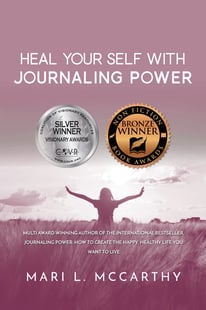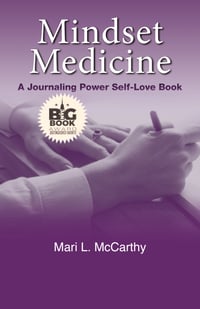Are you looking for a proactive way to take control of your life and achieve personal growth? Journaling has proven to be an effective method for not only reflecting on current events but also observing patterns in one’s thoughts and beliefs over time. Whether it is through creative storytelling, doodling, or recording day-to-day moments, keeping a written record of your life can provide significant benefits that go beyond simple chronology.
If you are looking for a way to promote personal growth, consider journaling. It can help you track your progress, set goals, and reflect on your thoughts and experiences. It can become your therapeutic outlet for dealing with stress and emotions.
What Is Journaling and How Can It Be Used as a Tool for Personal Growth?
Journaling is a form of self-expression that allows you to document your thoughts, dreams, and experiences. It helps to gain insight into what emotions are being expressed within yourself and in the world around you. It can be used as an effective tool for:
- Managing stress;
- Improving the clarity of thought;
- Creating feelings of happiness;
- Increasing awareness of your self-talk;
- Enabling you to make better choices in both personal and professional aspects of your life;
- Addressing the voice inside your head;
- Identifying patterns in relationships or connections between events;
- Cultivating insights that can help shape your future decisions.
How Does Journaling Benefit Your Life?
The following are the main advantages of using journaling to promote personal growth:
1. Helps to Identify and Work Through Personal Issues
By writing down your thoughts and feelings, you can gain a better understanding of what causes you stress or anxiety. Journaling can help you develop coping mechanisms for dealing with difficult situations.
2. Aids in Goal Setting and Achievement
Journaling can help you track your progress and identify roadblocks that may be preventing you from reaching your goals.
3. Increases Self-Awareness
By reflecting on your thoughts and experiences, you can better understand who you are and what is important to you.
4. Promotes Clarity and Focus
When you have a lot of thoughts racing through your mind, it can be difficult to sort through them all and figure out what is important. Writing down your thoughts can help you organize them and determine what is most important to you.
Writing down your thoughts can help you focus on them more than thinking about them. So, if you have trouble focusing, delegate your written tasks to writing services like Trust My Paper and immerse yourself in exploring the various capabilities of your personality.
5. Enhances Creativity
When you write down your thoughts, you are more likely to come up with new ideas that you would not have thought of otherwise. The act of physically writing can help to stimulate your creative juices. If you are feeling creatively blocked, journaling may be what you need to get your ideas flowing again.
6. Facilitates Stress Relief
Another advantage of journaling is that it can facilitate stress relief. Writing about your anxieties and worries can help to lessen their intensity and make them more manageable. Journaling can provide a sense of release from the stressors in your life and allow you to focus on the positive aspects of your life.
7. Builds Resilience
Journaling can also help to build resilience in the face of adversity. By writing about difficult experiences, you can develop a greater sense of control over them and learn how to cope with them in a healthy way. Journaling can also provide a space for processing emotions associated with traumatic events and promote healing from trauma.
8. Improves Memory and Cognition
In addition to promoting personal growth, journaling can have cognitive benefits. Studies have shown that regular writing can improve memory recall and cognitive function in older adults. Journaling can help people suffering from conditions, such as Alzheimer’s disease, by providing a way to express thoughts and feelings while maintaining cognitive function.
9. Gives a Sense of Achievement
Another advantage of journaling is that it gives you a sense of accomplishment. It can be satisfying to look back on what you have written and see how far you have come and how much you have accomplished. It is useful when times are tough, and you need a reminder that things will improve.
10. Promising Career Prospects
Journaling can help you improve your writing skills, required for getting a good job. Writing proficiency entails being able to express your thoughts, and write concisely, and in a logically structured manner.
Journaling can help you organize your thoughts over time by eliminating wording and clutter. If you experience any of these problems, consider visiting writing services review websites such as All Top Reviews to locate a qualified expert to help you.
Tips on How to Get Started with Journaling
Here are some journal writing tips to get you started:
1. Decide Why You Want to Journal
The first step to starting a journal is to decide why you want to journal in the first place:
- Do you want to use it as a tool for personal growth?
- Do you want to use it to track your progress on goals?
- Do you want to use it to vent about your day?
2. Choose a Journaling Method
There are many journaling methods, and the best one for you will depend on your goals. If you want to use journaling for personal growth, consider using a gratitude journal or an affirmation journal.
3. Set Aside Time Each Day
Try to find a time to write uninterrupted for at least 15-20 minutes. It may be first thing in the morning, during your lunch break, or before bed. Choose a time that works for you and stick to it as much as possible.
4. Be Consistent
The more often you write in your journal, the more benefits you will see from it. If you can, try to write in your journal every day. But if that is not possible, aim for 3-5 times per week. The key is to be consistent and make journaling a part of your routine.
5. Get Creative
There are no rules when it comes to how you should write in your journal. So, feel free to experiment and find what works best for you.
Ideas on Where to Keep a Journal
There are different ways you can keep your journal:
- On your nightstand. This way, you can write in it before you go to bed and reflect on your day;
- On your desk. It will be within easy reach whenever you are ready to write;
- If you prefer to keep an online journal, there are many great options available. One of the popular options is WordPress, which allows you to create a private blog that only you can see. Another popular option is Journalate, which lets you create a password-protected online journal.
Conclusion
Journaling every day can help you live a healthier and happier life. There are numerous advantages to taking time out of one's day to reflect on one’s thoughts and feelings, from better understanding oneself to developing writing skills. If you have not tried journaling before, you should give it a shot to see how beneficial it can be.
 Author bio: Kristen Bray is a professional writer and blogger. She mainly covers topics such as blogging, digital marketing, and self-education. In her free time, she practices yoga and also travels.
Author bio: Kristen Bray is a professional writer and blogger. She mainly covers topics such as blogging, digital marketing, and self-education. In her free time, she practices yoga and also travels.
Journaling Power Revolution Series





Leave Comment